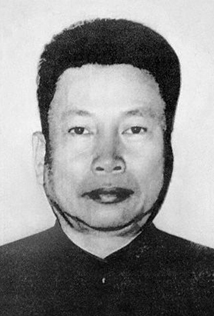Was Pol Pot an atheist?
Who was Pol Pot?
Pol Pot was the leader of the Khmer Rouge and the Prime Minister of Cambodia. Under his rule, the combined effect of slave labour, malnutrition, poor medical care and executions is estimated to have killed around 2 million Cambodians(approximately a quarter of the population). He is sometimes pointed out as an atheist in order to show the so called "dangers of atheism" and to pass off the argument that many wars have been done in the name of religion
Pol Pot based his actions on class struggle
The class struggle of Marxism contradicts the individual competition implied by natural selection of Darwin's theory. Pol Pot tried to erase individuality as he thought that differences create conflicts. With his artificial equality, abolishing private possessions and so erasing natural selection from society he was doomed by Evolution to fail, like all other communists. Pol Pot targeted not just different religions as differences, but education, science and medicine too. Pol Pot’s Khmer Rouge were composed of Buddhists and Pol Pot himself was a communist and Theravada Buddhist. Pol Pot studied at a Buddhist monastery (1 year) and then later at a Catholic school (8 years). As for “Collège Preah Sihanouk” and “Lycée Sisowath” I don’t know if they were secular or Buddhist oriented education institutions. Cambodia’s communism was influenced by Theravada Buddhism (the belief system of 95% of the Khmer people) and its teaching to renunciation of the material world as Pol Pot with his followers organized perfectly by smashing cars and modern industrial equipment with hammers.
Pol Pot’s Education: 1934 – 1935 Buddhist monastery Wat Botum Vaddei in Phnom Penh 1935 – 1943 Catholic school in Phnom Penh École Miche 1943 – 1947 Collège Preah Sihanouk at Kampong Cham 1947 – 1948 Lycée Sisowath in Phnom Penh 1948 – 1949 Technical school in Phnom Penh 1949 – 1952 École Francaise de radio-électricité
Pol Pot and Theravada Buddhism
Prince Norodom Sihanouk was the former king of Cambodia from 1941 as well as Head of State from 1955 to 1970 before resigning in 1976. He once said of Pol Pot:
"Pol Pot does not believe in God but he thinks that heaven, destiny, wants him to guide Cambodia in the way he thinks it the best for Cambodia, that is to say, the worst. Pol Pot is mad, you know, like Hitler."
Buddhists may not believe in God, but Atheists, by comparison, don't believe in anything beyond the natural and observable, heaven included (and Pol Pot’s comparison fellow Hitler in Sihanouk’s description was not an Atheist either). It seems that Pol Pot was not so big an Atheist as some Christians would like to present, mixing communism (social relations between humans) with atheism (humans relations with god) - they are two separate ideologies. The inflammatory comparison between the two is a logical fallacy in which the secular nature of Communism is assumed to justify the conclusion that all secularists are Communists, which is clearly not the case since an attribute of one system may also be an attribute of other systems. The American constitutional republic, for example, is also secular in nature.
Pol Pot convinced the Vietnamese to help the Cambodian Communists set up their own base camp. The central committee of the party met later that year and issued a declaration calling for armed struggle. The declaration also emphasized the idea of "self-reliance" in the sense of extreme Cambodian nationalism. In the border camps, the ideology of the Khmer Rouge was gradually developed. The party, breaking with Marxism, declared rural peasant farmers to be the true working class proletarian and the lifeblood of the revolution. This is in some sense explained by the fact that none of the central committee were in any sense "working class". All of them had grown up in a feudal peasant society. The party adapted elements of Theravada Buddhism to justify their non-standard Communism.
This site costs a lot of money in bandwidth and resources. We are glad to bring it to you free, but would you consider helping support our site by making a donation? Any amount would go a long way towards helping us continue to provide this useful service to the community.
Click on the Paypal button below to donate. Your support is most appreciated! |
|---|



